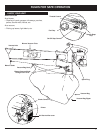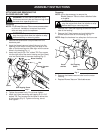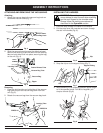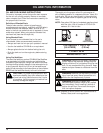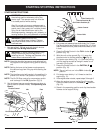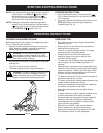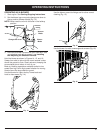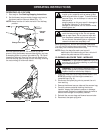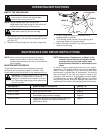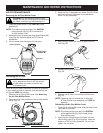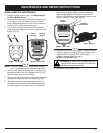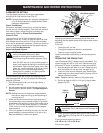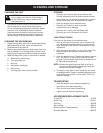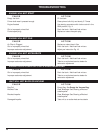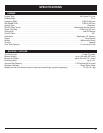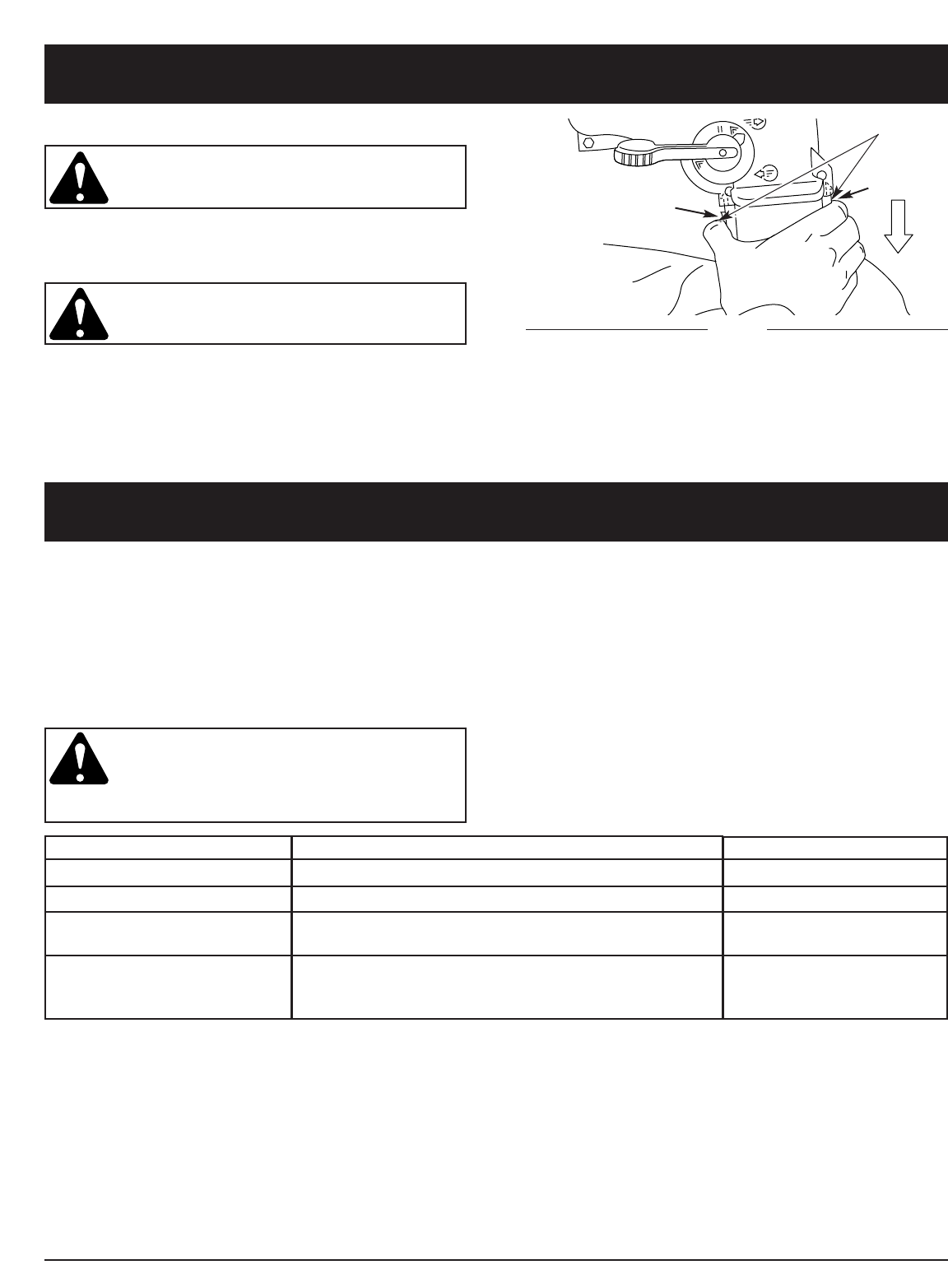
OPERATING INSTRUCTIONS
15
NOTE: Some maintenance procedures may require
special tools or skills. If you are unsure about
these procedures take your unit to an authorized
service dealer.
MAINTENANCE SCHEDULE
These required maintenance procedures should be
performed at the frequency stated in the table. They
should also be included as part of any seasonal tune-up.
WARNING: To prevent serious injury, never do
maintenance or repairs with unit running.
Always do maintenance and repairs on a cool
unit. Disconnect spark plug wire to ensure the
unit will not start.
MAINTENANCE AND REPAIR INSTRUCTIONS
EMPTY THE VACUUM BAG
WARNING: To avoid serious personal injury,
never unzip or remove the vacuum bag
without first turning the unit off.
NOTE: Empty the bag after each use to avoid
deterioration and obstructing air flow, which will
reduce the performance of the vacuum.
WARNING: Wear eye protection and a dust
mask when emptying the vacuum bag.
1. While pressing the latching tabs on both sides of the
vacuum bag tube, pull the vacuum bag down off the
unit (Fig. 19).
2. Detach the vacuum bag from the vacuum bag hook.
3. Unzip the bag and empty the contents into a
garbage bag or container.
4. Turn the bag inside out after initial emptying and
vigorously shake out dust and debris.
5. Return the bag to outside in, zip the bag closed and
reinstall vacuum bag.
Fig. 19
Latching tabs
PRESS IN
PRESS IN
MAINTENANCE REQUIRED
Fill fuel tank with correct oil and fuel mixture.
Clean and re-oil air filter.
Check Spark Arrestor and Clean
Check spark plug condition and gap.
Inspect exhaust port and spark arrestor screen for
clogging or obstruction to assure maximum
performance levels
FREQUENCY
Before Starting Engine
Every 10 Hours
Every 25 Hours
Every 50 Hours
REFER TO:
Page 10
Page 16
Page 17
Page 18
Page 17
NOTE: Maintenance, Replacement, or Repair of the
emission control devices and system may be
performed by any non-road engine repair
establishment, individual or authorized service
dealer.
In order to assure peak performance of your engine,
inspection of the engine exhaust port may be necessary
after 50 hours of operation. If you notice lost RPM, poor
performance or general lack of acceleration, this service
may be required. If you feel your engine is need of this
inspection, refer service to an authorized servicing dealer,
or establishment for repair. DO NOT attempt to perform
this process yourself as engine damage may result from
contaminants envolved in the cleaning process for the port.



